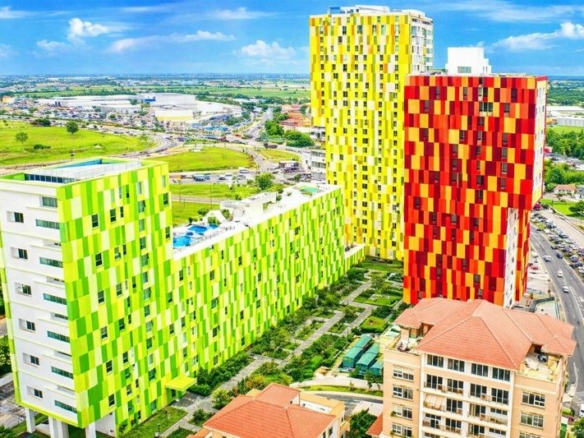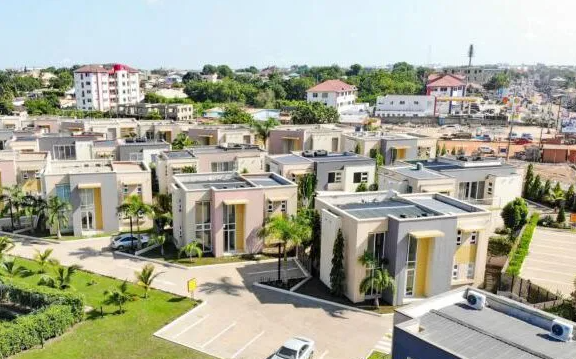The real estate landscape in Ghana continues to evolve rapidly in 2025, with off-plan property purchases becoming increasingly popular among savvy investors and homebuyers. Purchasing a property before it’s completed offers significant advantages, including lower initial costs, the potential for appreciation during the construction period, and the ability to customise certain elements of your future home. However, understanding the tax implications, particularly Value Added Tax (VAT), is crucial before buying off-plan property in Ghana.
This guide provides essential information about VAT considerations when buying off-plan properties in Ghana, helping you make informed decisions and potentially save thousands of dollars on your investment.
Understanding Off-Plan Property Purchases in Ghana
Off-plan property refers to real estate that is still in the planning or construction phase. When you purchase off-plan, you’re essentially buying a property based on architectural plans and specifications before it’s built.
In Ghana’s competitive real estate market, this approach has gained traction due to:
- Lower entry prices: Developers often offer discounted rates during pre-construction phases
- Payment Flexibility: Staged payment plans that align with construction milestones
- Capital appreciation: Potential value increases between purchase and completion
- Customization options: Opportunities to select finishes and sometimes modify layouts
However, these benefits come with specific tax considerations that buyers must understand.
The 5% VAT Regime for Developers in Ghana
Ghana’s tax structure imposes a 5% Value Added Tax on property developers for new residential and commercial buildings. This represents a significant tax consideration that ultimately affects the final cost of your property investment.
How Developer VAT Impacts Off-Plan Buyers
When purchasing off-plan property, it’s essential to understand that the 5% VAT charged to developers is typically passed on to buyers in some form. Here’s what you need to know:
- VAT Inclusion in Purchase Price: Some developers build the VAT cost into the advertised price of properties. This creates price transparency but may make properties appear more expensive at first glance.
- VAT as a Separate Charge: Other developers advertise the base property price and then add VAT separately. This approach can make properties seem more affordable initially, but buyers must account for the additional 5% when budgeting.
- VAT Exemptions: Certain affordable housing projects in Ghana may qualify for VAT exemptions. These exemptions are part of government initiatives to address the housing deficit (estimated at over 1.8 million units as of 2021).
What to Look for in Off-Plan Purchase Agreements
When reviewing an off-plan property purchase agreement, pay particular attention to the following VAT-related aspects:
1. Clear VAT Disclosure
Ensure the agreement clearly states whether the quoted price includes or excludes VAT. This transparency prevents unexpected costs when it’s time to make payments.
2. VAT Payment Schedule
Understand when VAT payments are due. Some developers require VAT payment upfront, while others may allow you to pay it in instalments alongside your construction-stage payments.
3. VAT Rate Lock-In
With tax policies subject to change, a clause that locks in the current 5% VAT rate can protect you from potential increases during the construction period.
4. VAT Refund Mechanisms
In some cases, if construction delays extend beyond agreed timelines, you may be entitled to VAT refunds or adjustments. Ensure your agreement addresses this possibility.
Strategic Approaches to Managing VAT Costs
Savvy investors can employ several strategies to manage VAT costs when purchasing off-plan properties:
Negotiating VAT Absorption
Some developers may be willing to absorb part or all of the VAT, especially for early buyers or bulk purchases. This negotiation point can lead to significant savings.
Timing Your Purchase
Market conditions and developer incentives vary throughout the year. Timing your purchase during promotional periods may result in VAT discounts or other financial incentives that offset the tax burden.
Exploring VAT-Exempt Options
As mentioned earlier, certain affordable housing initiatives may qualify for VAT exemptions. Researching these options could lead to substantial tax savings.
Regional Variations in VAT Implementation
It’s worth noting that VAT implementation can vary slightly across different regions in Ghana:
- Accra and Kumasi: Stricter enforcement of VAT regulations due to higher property values and more formalized development processes
- Secondary Cities: Sometimes more flexible VAT arrangements may be available
- Special Economic Zones: May offer specific tax incentives including VAT considerations
The Future of VAT on Off-Plan Properties in Ghana
Ghana’s real estate tax landscape continues to evolve. Current discussions among policymakers suggest potential adjustments to the VAT structure for real estate developments. Staying informed about these changes is crucial for investors planning long-term property acquisitions.
Conclusion
Understanding VAT implications is an essential aspect of purchasing off-plan property in Ghana. By carefully reviewing purchase agreements, negotiating favourable terms, and staying informed about tax regulations, buyers can make more financially sound investment decisions.
The 5% VAT for developers represents a significant consideration in the total cost of your property investment. However, with proper planning and negotiation, you can navigate this tax efficiently and still benefit from the many advantages of buying off-plan in Ghana’s dynamic real estate market.
Before finalizing any off-plan property purchase, consult with a tax professional familiar with Ghana’s real estate regulations to ensure you’ve optimized your approach to VAT and other tax considerations.
FAQs About VAT on Off-Plan Properties in Ghana
1. Is VAT always charged on off-plan property purchases in Ghana?
Yes, the standard 5% VAT applies to most new developments, but certain affordable housing projects may qualify for exemptions under government initiatives.
2. Can I negotiate VAT costs with property developers?
While the VAT rate itself is fixed by law, some developers may be willing to absorb part or all of the VAT cost, especially for early buyers or during promotional periods.
3. What happens to VAT payments if my off-plan property is significantly delayed?
This depends on your purchase agreement. Well-drafted agreements should include provisions for VAT refunds or adjustments in case of significant construction delays.
4. Are foreign investors subject to the same VAT regulations when buying off-plan in Ghana?
Yes, the 5% VAT applies equally to both local and foreign investors purchasing off-plan properties in Ghana.
5. Where can I find updated information about potential changes to Ghana’s real estate VAT policies?
For the most current information on Ghana’s real estate tax policies, visit Ghana Property Finder’s market insights section, which regularly publishes updates on regulatory changes affecting property investments.
Ready to explore off-plan property options in Ghana with clear VAT information? Visit Ghana Property Finder today to browse our extensive listings of pre-construction properties across Accra, Kumasi, and other prime locations. Our platform provides detailed information about pricing structures, including VAT considerations, helping you make informed investment decisions.






